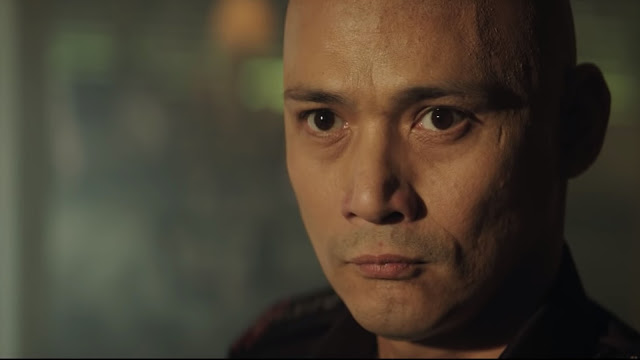Based on true events, a man, known for his tough facade, must stay true to his spiritual morality while fulfilling the brutal demands of his job, as a dutiful and a passionate policeman.
Right into Action
Directed by Adolfo Alix Jr., BATO: The General Ronald Dela Rosa Story presents the untold events in Bato's life, opposite to the seemingly reproachful scrutiny of the media. From the moment of its announcement, this biopic had already created a buzz and for all the wrong reasons.
For many, it was a blatant move to promote Bato's candidacy in the coming 2019 senatorial elections. Despite the backlash, its leading actor Robin Padilla, who played the titular role, had been very vocal about his stance and insisted that ostracizing the film would only harm its filmmakers.
The movie opens with a humble Dela Rosa household, as he and his family was celebrating his daughter's birthday when they, from some demanding reason, were attacked by two gunmen leading to a swift shooting introduction.
From the get-go, Alix Jr. wants to put his audience right into action and not waste any moments of boredom.
And Then It Went Downhill
However, the aspiration to mold a thrilling setup about Bato's origin seems like a heavy task to perform and thus quashes the film's opportunity to become compelling. After a strong opening, the movie shifted to Bato's pre-service days in a dragging and contrived flashback sequences of his childhood.
First of, the film depicts a teenage Bato (played by Kiko Estrada) as some intimidating romantic person, driving a military tank as he woos a beautiful girl at her house. Talk about a dramatic entrance. Minutes later, the film then transports you back to present day, as Bato and his troops were resolving a kidnapping case.
After some irrelevant chit-chat, the scene then swerves back into his younger years, discovering a dispute between his father and a rebel group, while the story makes an effort to build Bato's quasi-heroic motivations as to why he wants to become a policeman. Later on, the film continued to its present day dilemma, showing a distressing police operation which doesn't do our real life policemen any favors.
The transition between scenes were so jagged and was an odd editing choice, especially coming from an award winning filmmaker.
For one, the film doesn't show you how he got to his ranks. Instead, it assumes that the audience will just fill the gaps in and patches up its tattered narrative tapestry. If anything, Kiko Estrada's performance almost persuaded me about the authenticity of the story. For what its worth, he has single-handedly carried a drab sequence and made me care about his character's disposition.
The movie likes to contradict itself as well. One scene, you see a very aggressive Bato, haphazardly gunning all these dispensable rebels, and seconds later you see a merciful, church-person Bato, confessing his guilt about killing criminals, believing that they can still change amidst their sins.
Of course, the whole shtick won't be complete without a cheaply done climax, which reminds me of that horrifying Manila bus hostage crisis in 2010. You get the picture and needless to say, it was awful.
Let's Be Reel
Going in to this film, I removed all my prejudgments and see it as a stand-alone action cop drama. However, its banal execution convinced me that BATO: The General Ronald Dela Rosa Story is nothing but a weak trickery at advertising a political propaganda.
2/10
Reel Points








Comments
Post a Comment